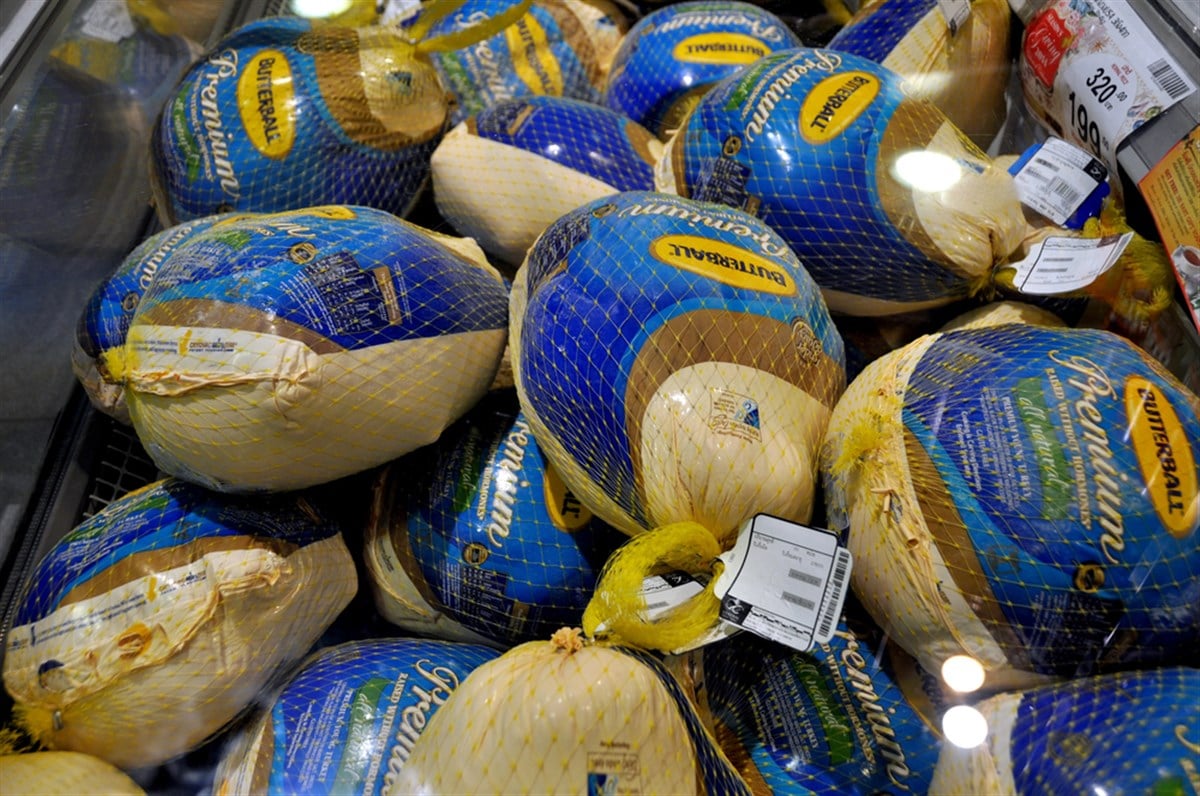
Seaboard Corporation (NYSEAMERICAN: SEB) is the parent company of Butterball, America's leading turkey producer and a name synonymous with Thanksgiving for many households. However, beyond the familiar Butterball brand lies a large, diversified agribusiness and maritime transport conglomerate with a compelling investment story that most investors have never heard before. With Seaboard Corporation’s stock currently trading near its 52-week low, is this a prime opportunity to carve out a piece of this often-overlooked agribusiness giant before the market recognizes its potential?
Seaboard’s Q3: Short-Term Setback, Long-Term Potential
Seaboard Corporation's earnings report for the third quarter of fiscal year 2024 (Q3 FY2024) showed a net loss of $149 million, a notable deviation from the $126 million in net earnings achieved during the same period in 2023. This variance is primarily due to a $176 million valuation allowance recorded against U.S. deferred tax assets, which is a non-cash charge that does not reflect underlying operational performance.
However, it underscores the importance of a long-term perspective when assessing Seaboard. While the company's free cash flow generation has shown some volatility, its diverse business model and history of profitability demonstrate its resilience. This historical performance suggests a potential for future earnings growth.
Seaboard's management remains confident in the company's strong underlying business fundamentals despite facing legal challenges related to antitrust and the Helms-Burton Act claims. The company is actively defending itself against these claims. While the ongoing legal proceedings present short-term risks and uncertainties, they do not fundamentally impact the company's core business strengths.
Seaboard’s Diversified Business Is a Multi-Course Meal
Seaboard Corporation's (SEB) operations are remarkably diversified, spanning six distinct segments: Pork, Commodity Trading and Milling (CT&M), Marine, Sugar & Alcohol, Power, and Turkey. The Pork segment is a vertically integrated operation encompassing everything from hog production to processing and sales and this segment constitutes a significant portion of SEB’s revenue. The CT&M segment focuses on sourcing, transporting, and marketing a range of agricultural commodities, primarily operating in Africa and South America. This segment provides some stability in contrast to the more volatile agricultural businesses.
The Marine segment provides cargo shipping services and is exposed to the cyclical nature of shipping markets and freight rates. The Sugar & Alcohol segment centers on the production and sales of sugar and alcohol, mainly operating in Argentina. The Power segment serves as an independent energy sector producer, generating electricity for the Dominican Republic's power grid. Finally, the Turkey segment holds the majority equity stake in Butterball, LLC, the renowned producer of Thanksgiving Day turkeys. The diversification of this portfolio mitigates the risk associated with dependence on any single market or business cycle.
Its vertically integrated processes further characterize Seaboard's operations. For example, the Pork segment controls a large portion of the supply chain, from raising hogs to processing and selling pork products. This vertical integration improves efficiency, allowing better control over costs and margins while also fostering resilience during times of market volatility. However, competitive pressures continue to weigh on several of its segments, creating uncertainty for the short term.
Seaboard Provides a Plentiful Plate
Seaboard Corporation’s financials provide a mixed picture for investors. While the company's recent earnings performance concerned investors, examining the company’s financial metrics sheds light on other important indicators. Seaboard boasts a strong current ratio of 2.44 and a quick ratio of 1.50, suggesting short-term liquidity. This indicates its capacity to meet its near-term financial obligations. However, profitability remains a key concern, as demonstrated by the negative net margin of -0.02% and the negative return on equity of -0.04%.
Despite these negative figures, many analysts argue Seaboard may currently be significantly undervalued relative to its book value. This undervaluation is further supported by its low price-to-sales ratio of 0.27 and its low price-to-cash flow ratio of 5.10. These ratios are often used when earnings are volatile or negative, and they suggest a potential for a considerable price increase if the company can return to profitability.
Seasoned for Success: Management and Long-Term Outlook
Seaboard's long-term success can also be attributed to its experienced management team, a significant portion of whose members represent the Bresky family, which has been at the helm for decades. This continuity of leadership promotes consistent strategy execution and reinforces a long-term vision for the company. This family connection often brings stability, especially when dealing with short-term market volatility. Despite the current setbacks, Seaboard's diversified operations and strong balance sheet create a solid foundation for future growth.
While the recent performance has been concerning, the company’s long history, diversified operations, and balance sheet suggest the potential for recovery and a significant increase in share price over the long term, particularly if market conditions improve and the company’s segments can improve profitability.
Seaboard: Feast or Famine?
While Seaboard Corporation's recent financial results present immediate challenges, a closer look reveals a compelling investment story for long-term investors. Seaboard Corporation's diverse business model, encompassing well-known brands like Butterball Turkeys and substantial commodity trading and marine transport segments, contributes to a resilient business profile.
Seaboard’s balance sheet suggests a potential hedge against market volatility, making Seaboard a particularly interesting proposition for those seeking stability during uncertainty. While navigating current legal headwinds, management’s strong leadership and decades-long experience position Seaboard favorably for future success, suggesting that current market pricing may not fully reflect the company’s underlying value and its long-term growth potential. Therefore, while some short-term challenges may have overshadowed this year’s Thanksgiving feast, Seaboard's diversified portfolio and proven resilience suggest that a more plentiful harvest may well be in store for long-term investors.














